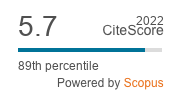The present study investigated the effect of meals and fractions of black soldier fly larvae (BSFL; Hermetia illucens) in diets for Atlantic salmon (Salmo salar) on the physical quality of feed pellets, nutrient utilisation, and growth performance. Six extruded diets were produced: control diet (CD); full-fat BSFL meal diet (IM); defatted BSFL meal diet (DFIM); de-chitinised BSFL meal diet (DCIM); BSFL oil diet (IO) and BSFL exoskeleton diet (EX). The full-fat, defatted and de-chitinised meals replaced 15% of protein in the control diet. An eight-week study was conducted using salmon with average 28 g initial weight. The full-fat and de-chitinised meals in the diets numerically reduced pellet hardness, expansion, and water stability. The full-fat and de-chitinised meals improved growth rate of salmon, whilst defatted meal, oil and exoskeleton supported similar growth performance as the control. Feed intake and growth rate of fish fed full-fat meal diet were higher than those fed the other insect diets, but defatted meal gave a better feed conversion ratio than full-fat meal. Defatted meal, de-chitinised meal and exoskeleton reduced protein digestibility in fish, however; defatted meal increased the digested protein retention. In conclusion, use of full-fat BSFL meal improved feed intake and growth rate of salmon when replacing 15% of dietary protein. The present results suggest that less processed fullfat form of BSFL is more optimal in diets for salmon and further processing to remove lipid or exoskeleton fractions would only lead to an additional cost.
RESEARCH ARTICLE
Insects in Atlantic salmon (Salmo salar) diets – comparison between full-fat, defatted, and de-chitinised meals, and oil and exoskeleton fractions
P. Weththasinghe Related information
1Department of Animal and Aquacultural Sciences, Faculty of Biosciences, Norwegian University of Life Sciences, P.O. Box 5003, 1432 Ås, Norway.
, J.Ø. Hansen Related information1Department of Animal and Aquacultural Sciences, Faculty of Biosciences, Norwegian University of Life Sciences, P.O. Box 5003, 1432 Ås, Norway.
, M. Rawski Related information2Division of Inland Fisheries and Aquaculture, Institute of Zoology, Faculty of Veterinary Medicine and Animal Science, Poznań University of Life Sciences, ul. Wojska Polskiego 71C, 60-644, Poznań, Poland.
, D. Józefiak Related information3Department of Animal Nutrition, Faculty of Veterinary Medicine and Animal Science, Poznań University of Life Sciences, ul. Wołyńska 33, 60-627, Poznań, Poland.
, S. Ghimire Related information1Department of Animal and Aquacultural Sciences, Faculty of Biosciences, Norwegian University of Life Sciences, P.O. Box 5003, 1432 Ås, Norway.
, M. Øverland Related information1Department of Animal and Aquacultural Sciences, Faculty of Biosciences, Norwegian University of Life Sciences, P.O. Box 5003, 1432 Ås, Norway.
*Corresponding author: margareth.
*Corresponding author: margareth.

Journal of Insects as Food and Feed: 8
(11)- Pages: 1235 - 1247

Published Online: December 16, 2021
2022 Journal Impact Factor
5.7
source: Journal Impact Factor 2023™ from Clarivate™

Institutional Offers
For institutional orders, please contact [email protected].
Purchase Options
-
G. Daş, M.M. Seyedalmoosavi, K. Schleifer, M. Mielenz and C.C. Metges
-
-
M. Barrett, S.Y. Chia, B. Fischer and J.K. Tomberlin
-
D.G.A.B. Oonincx and M.D. Finke
-
G. Bosch and K.S. Swanson
-
K.B. Barragan-Fonseca, M. Dicke and J.J.A. van Loon
-
A. van Huis
-
M. Tschirner and A. Simon
-
S. Kelemu, S. Niassy, B. Torto, K. Fiaboe, H. Affognon, H. Tonnang, N.K. Maniania and S. Ekesi
-
S. Diener, C. Zurbrügg and K. Tockner
Call for papers: Application of insect ingredients in sustainable aquaculture



